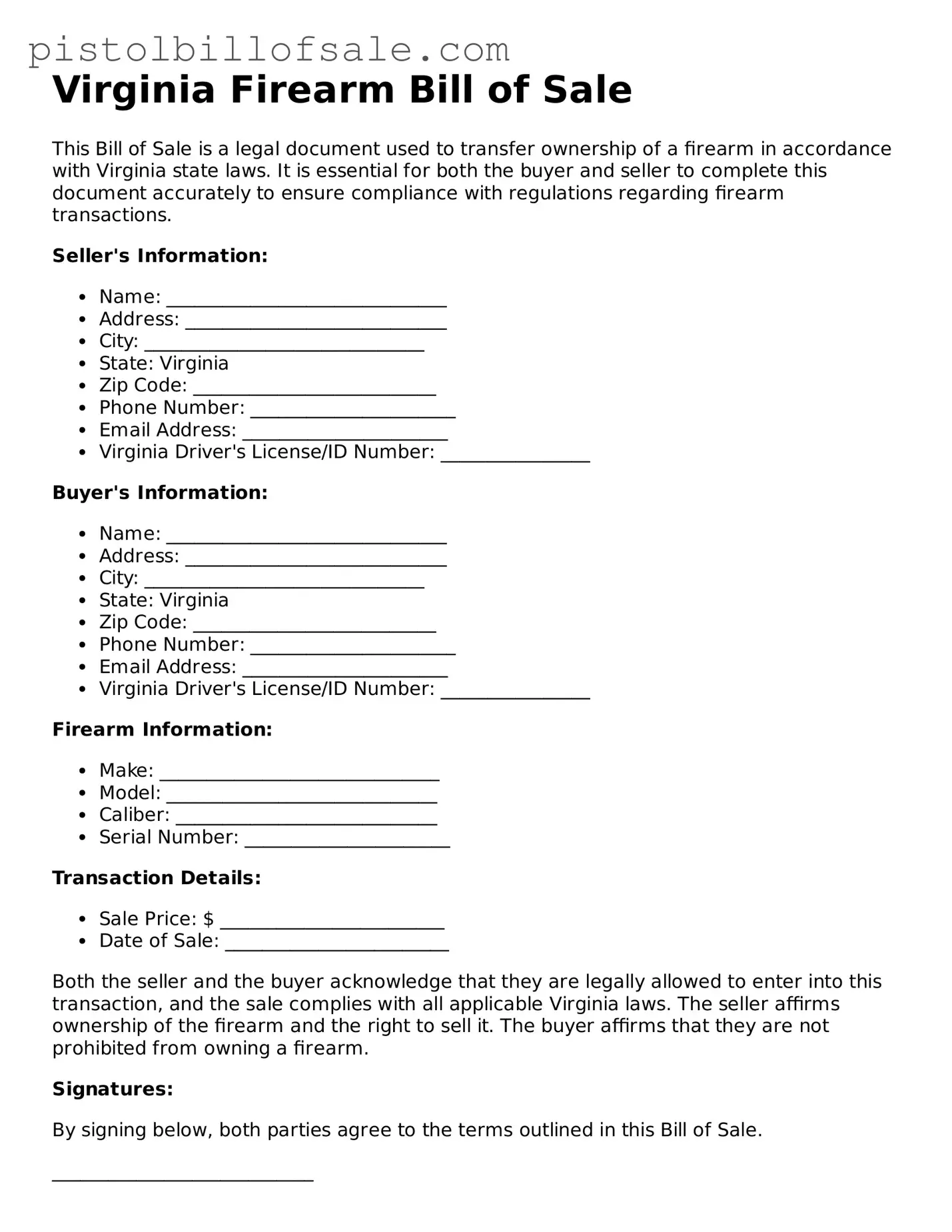Browse Some Other Firearm Bill of Sale Forms for US States
Form 4473 Rules - Increases accountability in firearm ownership transfers.
Vermont Rifle Bill of Sale - It serves as a receipt for the buyer after acquiring the firearm.
A Florida Non-disclosure Agreement form is a legally binding document used to protect sensitive information. Companies and individuals rely on this form when sharing confidential data, ensuring that the receiving party does not disclose it to any unauthorized entities. It serves as a crucial tool for safeguarding trade secrets, client information, and other proprietary data, and you can find a reliable template at https://smarttemplates.net.
Rifle Bill of Sale - A form that outlines firearm description and identification details.
